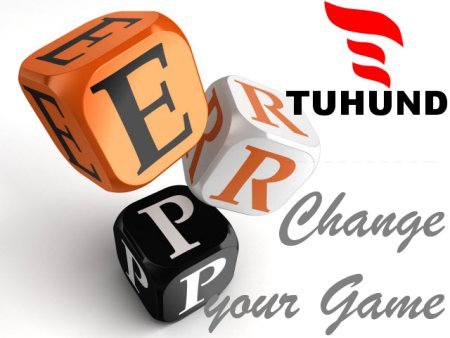ERP or Enterprise Resource Planning is a de-facto standardized term used to refer to an integrated software system used by an organization to manage a wide range of business and non-business activities in a systematic and well coordinated fashion. ERP is a very powerful business tool and in the present highly dynamic business landscape it is absolutely necessary to run any organization. ERP multiplies productivity, cuts out non-value adding activities, reduces costs, saves time, eliminates pilferages, reduces wastage, increases efficiency, expands knowledge, enables proactive control, increases visibility, drives growth, increases margins, minimizes risks, reduces working capital requirement and creates opportunities. It creates new possibilities that do not exist or at least are not viable without an ERP.
The term ERP in itself does not say much about the system. While on one hand small solutions built with specific limited functionality call themselves ERP and on the other large enterprise system with vast modules and features are also referred to as ERP. Most large systems, like Tuhund, actually go much beyond being just an ERP. At the very least they are a combination of Enterprise Resource Planning - ERP, Customer Relationship Management - CRM, Human Resource Management System - HRMS, Services Management System, Intellectual Property Management System, Knowledge Management System, Asset Management System, Marketing Management System, Project Management Tool, Issue Management, Crisis Management System and so on.
A good ERP is a tool for everybody in the organization. The idea of ERP users and non-ERP users in an organization is an outdated concept. All the resources, all the work and all the output is managed in and through ERP. ERP provides visibility, analytics and efficiency across every aspect of a business in real time. Using the latest technologies, ERP systems facilitate the flow of real-time information across departments, so businesses can make data-driven decisions and manage performance. Most ERP even have fairly good amount on Artificial Intelligence built in. ERP systems like Tuhund are designed to assist with decision making and even come up with suggestions for handling different situations.
The backbone of every major ERP is its Accounting and Finance module. Though including all its sub-modules like General Ledger, Accounts Receivable, Accounts Payable, Cost Accounting, Tax Accounting, Forex, Profit and Loss Account, Balance Sheet, Cash Flow Statement and so on, accounting and finance is just one module out of many, it remains one of the most important module. A good ERP automatically changes how organizations are run. For instance, a Balance Sheet becomes a powerful real-time control tool rather than being just a compliance report. Live dashboards, with indicators, thresholds, warnings, reminders and alerts help you focus precisely where it is required.
Even with the large functionality and complex structure, latest ERP system are much easier to work with compared to their legacy counterparts. They are much more user friendly and intuitive. Working with Tuhund is almost as simple as using Facebook. Major ERP like Tuhund are very flexible and highly scalable allowing users to configure rules, workflows, processes, templates and so on to the extent that was previously possible only with heavy customization involving huge cost and time.








